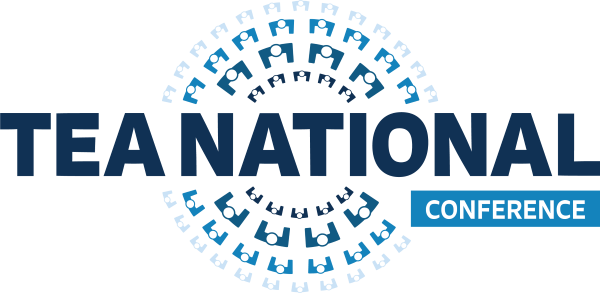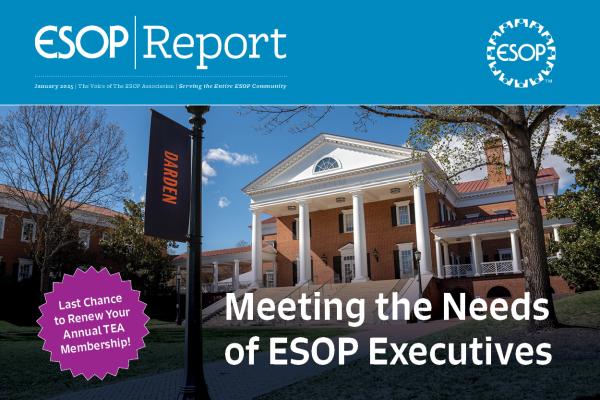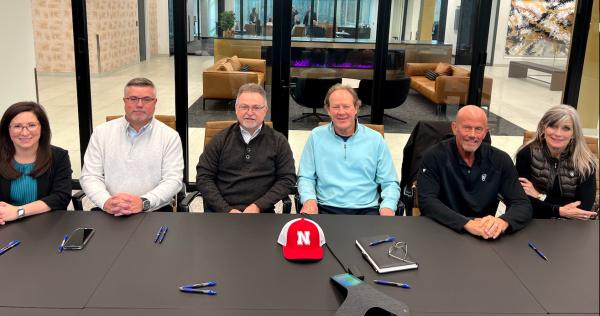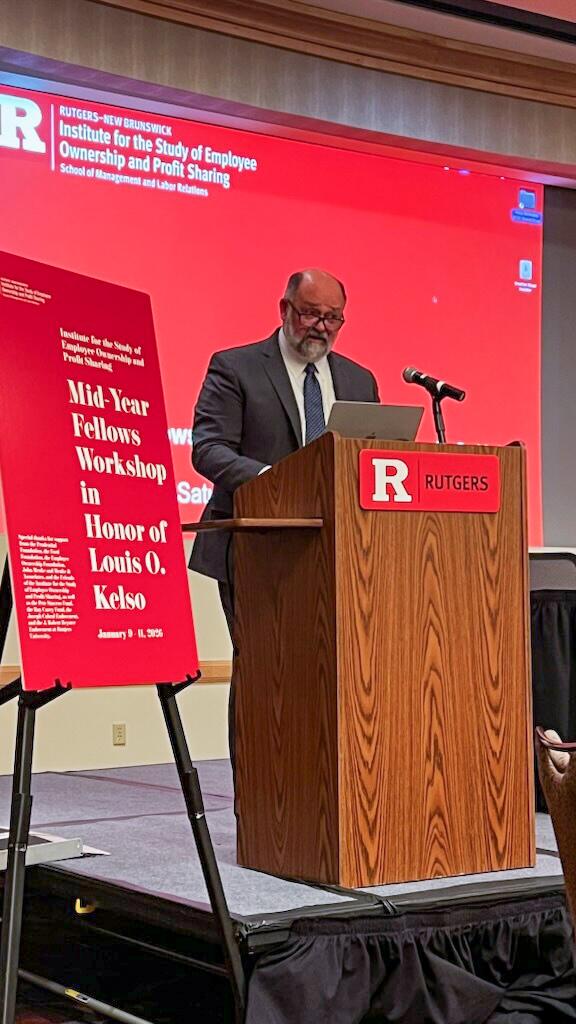Print this Policy Paper >>
Advocacy Mission
To build and utilize the Association’s resources on behalf of its membership to effectively promote sound public policy at all levels that encourages the growth and enhances the function of existing ESOPs and incentivizes the creation of new ESOPs.
Advocacy Vision
To establish and maintain TEA as the united, effective public policy voice for all ESOPs and their trusted service providers in order to strengthen, grow, and advance employee ownership and its benefits.
Scope
The ESOP Association’s membership is bound by the commonality of employee stock ownership plans – to that end, TEA advocacy intends to work at the federal, state, and local levels, to the extent possible and resources allow, to promote ESOPs specifically and employee ownership in general. Its primary scope of effort in this area will be on those policy and regulatory issues that directly affect the employee stock ownership plans of its membership. Realizing that TEA’s membership represents both a diverse collection of employee-owned businesses and a variety of professionals and organizations that support them, it will not be possible to engage on every policy matter that affects every member. Therefore, TEA will often be in the position of reserving its efforts solely to those issues that most directly affect employee stock ownership plans.
Process and Levels of Legislative Input
To determine TEA’s official opinion on a public policy matter, TEA Advocacy staff will forward the proposal with any details and/or supporting information to its Public Policy Council Executive Committee (PPC EC). As part, TEA advocacy staff may include a recommendation for the PPC EC to consider. The PPC EC, in consultation with the TEA President/CEO or their designee, will determine either that the issue is not one TEA needs to examine in detail (e.g. it does not affect ESOPs or support TEA’s core mission), or that the proposal is relevant to its mission. The PPC EC should then determine its recommendation.
If the PPC EC determines a particular proposal requires further review, the Chair of the PPC EC will appoint a “lead” based on interest, time, and/or general knowledge of the issue(s) to report back to the PPC Chair in writing within a specified time. That appointed lead may work with members of the TEA Advisory Committees, TEA leadership and staff, and members of the PPC as needed.
The PPC EC can then determine its recommendation. All formal recommendations will be sent to the full TEA Board of Directors for approval. The PPC recognizes the work of the TEA leadership and advocacy staff on a day-to-day basis and trusts its judgement to bring appropriate matters to its attention for review and consultation. In the inevitable instances a proposal of some sort is being considered immediately, is the subject of timely negotiation, or otherwise falls into an urgent category, TEA advocacy staff will, in a reasonable time, inform the PPC Chair, EC, and full PPC membership of its efforts on behalf of TEA.
Possible TEA Recommendation Outcomes
Endorse and Support | TEA statement of support and an activation of EOAN/grassroots to contact elected officials to encourage support (e.g. a cosponsor or vote).
- This recommendation should be reserved for proposals that directly support ESOPs, typically have TEA input or feedback included, and have a likely chance of being considered.
Endorse | TEA statement of support to key decisionmaker or interest group (send letter to a bill sponsor, committee chair, governor, or sponsoring organization).
- This recommendation should be more common than “Endorse and Support” and should be provided to legislation that supports ESOPs or employee ownership in a lesser or peripheral way, perhaps on legislation with a lesser chance of consideration.
Neutral | TEA will issue no statement on the bill/proposal; if pressed TEA will issue a “neutral” statement declaring that it has “no opinion” on the matter.
- This recommendation should be utilized for proposals that substantially divide the membership, have no discernable benefit to employee ownership, or are outside the scope of TEA’s mission.
Oppose | TEA statement of opposition to interested and/or requesting parties.
- This recommendation should be used for proposals that TEA finds are unproductive, unnecessarily burdensome, and/or otherwise limiting to ESOPs (but perhaps can be modified or otherwise improved).
Oppose and Defeat | TEA statement of opposition, activate EOAN/grassroots to contact elected officials to oppose the bill (e.g. to not cosponsor or to vote against).
- This recommendation should be reserved for harmful proposals, ones that target ESOPs or dramatically harm or restrict employee ownership, or otherwise discriminate against ESOPs and employee ownership. Urgency and likelihood of consideration should be a factor as well.
Interest/Monitor | When a proposal merits more details and review, and TEA’s position is undecided.
- This is neither support nor opposition, nor affirmatively neutral. It should be used when a proposal is in progress or incomplete, requires more serious technical evaluation, or should be “on our radar.”
If required by a recommendation, a TEA support/opposition statement will be drafted and approved by the TEA Advocacy staff for dissemination through TEA channels as appropriate. A copy of the approved letter will be sent to the full Public Policy Council and the TEA Board of Directors, as part of TEA Advocacy’s other utilization of the statement.









